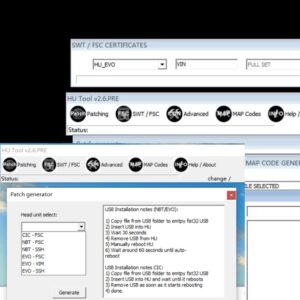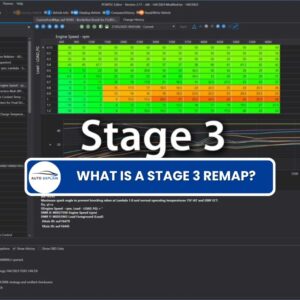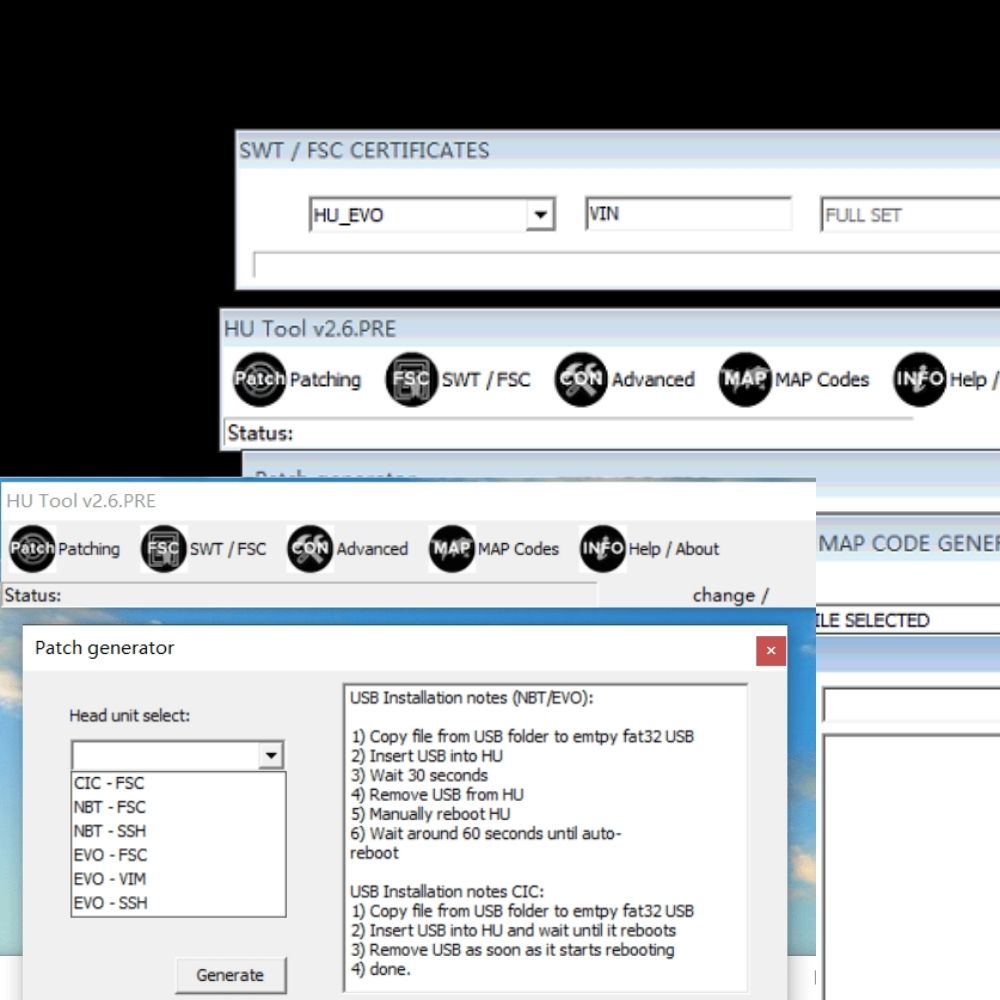
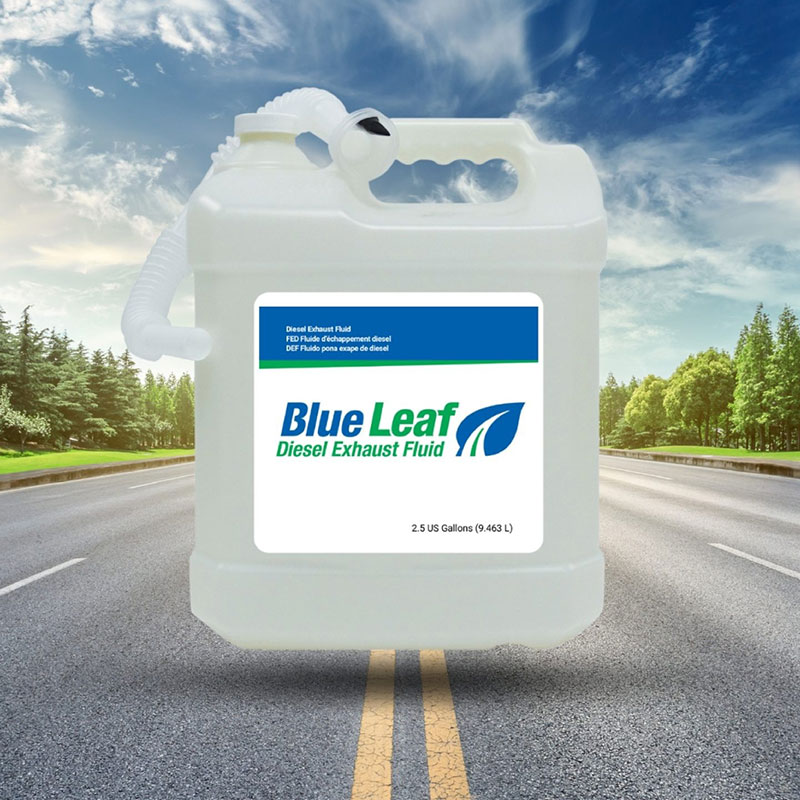
What is Diesel Exhaust Fluid (DEF)? Everything You Need to Know
Diesel Exhaust Fluid (DEF) is a crucial component for modern diesel engines equipped with Selective Catalytic Reduction (SCR) systems, ensuring compliance with environmental regulations and optimal engine performance. AutoExplain provides expert insights into DEF, explaining its composition, function, and importance in reducing harmful emissions and maintaining the longevity of your diesel engine. By understanding DEF, vehicle owners, fleet managers, and automotive technicians can ensure their diesel vehicles operate efficiently and meet stringent emissions standards
Table of Contents
Toggle1. Understanding Diesel Exhaust Fluid (DEF)
Diesel Exhaust Fluid, commonly known as DEF, is a non-toxic liquid solution specifically engineered to minimize nitrogen oxide (NOx) emissions produced by diesel engines. NOx emissions are a significant contributor to air pollution, smog, and various respiratory issues, as noted by the Environmental Protection Agency (EPA). DEF works in conjunction with Selective Catalytic Reduction (SCR) systems to convert harmful NOx gases into harmless nitrogen and water vapor.
1.1. What is Selective Catalytic Reduction (SCR)?
Selective Catalytic Reduction (SCR) is an advanced emission control technology integrated into the exhaust system of diesel vehicles. The SCR system facilitates a chemical reaction where DEF is injected into the exhaust stream, breaking down NOx gases into environmentally friendly components. Here’s how the SCR process works:
- Exhaust gases from the engine mix with injected DEF.
- DEF reacts with NOx, producing ammonia.
- Ammonia interacts with remaining NOx gases, converting them into nitrogen and water vapor.
- Nitrogen and water vapor are released into the atmosphere.
This process significantly reduces the amount of harmful pollutants released, ensuring diesel engines meet environmental regulations.
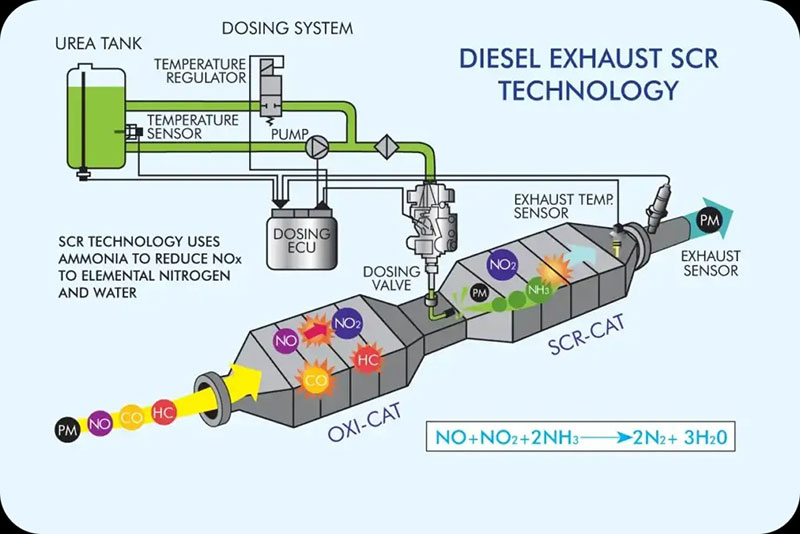
1.2. The Primary Purpose of Diesel Exhaust Fluid
The main goal of DEF is to neutralize NOx gases produced during diesel combustion, thus reducing harmful emissions. These emissions contribute to air pollution, smog formation, acid rain, and various respiratory problems. By converting these gases into nitrogen and water vapor, DEF promotes cleaner and more efficient operations for modern diesel vehicles.
DEF is predominantly used in diesel-powered vehicles, including heavy-duty trucks, buses, and some passenger cars. Its applications also extend to other industries, such as construction equipment and agricultural machinery, all of which utilize SCR systems that rely on DEF to minimize emissions.
2. What is Diesel Exhaust Fluid (DEF) made of?
Diesel Exhaust Fluid is made of two main components: 32.5% urea and 67.5% deionized water. This specific composition is crucial for the proper functioning of SCR systems and compliance with EPA regulations.
2.1. Urea: The Active Ingredient
Urea is the active component in DEF. It is a synthetically produced compound designed for industrial use, ensuring purity and preventing contaminants from entering the engine’s exhaust system. When injected into the exhaust stream, urea decomposes to produce ammonia (NH3), which then interacts with nitrogen oxide in the SCR catalyst to form nitrogen (N2) and water (H20).
2.2. Deionized Water: The Carrier
Deionized water acts as the carrier for the urea solution, ensuring it flows smoothly through the engine’s exhaust system and reacts effectively in the SCR process. Regular water contains minerals that can damage the SCR system. Deionized water is free from these contaminants, ensuring the solution remains stable and does not clog or corrode the exhaust system’s components.

3. What Does Diesel Exhaust Fluid (DEF) do in Diesel Engines?
DEF offers numerous benefits for diesel engines, ranging from improved engine efficiency and longevity to compliance with environmental standards.
3.1. Enhancing Engine Efficiency
Before the implementation of SCR systems and DEF, methods to control emissions, like exhaust gas recirculation, required engines to operate at lower combustion temperatures to reduce NOx production. However, this approach often reduced fuel efficiency and engine power. With DEF and SCR technology, diesel engines can operate at optimal combustion temperatures, resulting in:
- Improved Fuel Economy: Optimal combustion temperatures ensure more complete fuel combustion, reducing fuel consumption.
- Increased Power Output: Engines can deliver optimal performance without compromising emissions standards.
3.2. Minimizing Downtime
Downtime can be a significant challenge for fleet owners, leading to increased costs and operational disruptions. DEF helps avoid this by ensuring that vehicles with SCR systems remain operational. The system alerts the operator when DEF levels are low, allowing for timely refills before performance is affected or the vehicle shuts down completely.
3.3. Extending Engine Longevity
Diesel engines are known for their durability and long life spans. The introduction of SCR systems and DEF can further extend their potential. Here’s how DEF contributes to engine longevity:
- Reduced Soot and Carbon Deposits: DEF allows engines to burn fuel more efficiently, indirectly reducing the buildup of soot and carbon inside the engine. This leads to cleaner components and less wear and tear.
- Lower Exhaust Temperatures: The SCR system reduces the workload on other emissions-control components, resulting in lower exhaust temperatures and less stress on the system.
- Minimized Risk of Damage: DEF’s purity level prevents contaminants from entering the exhaust system, protecting sensitive components.
3.4. Ensuring Compliance with Environmental Standards
Governments worldwide have introduced stringent emission standards to reduce air pollution. Without DEF, vehicles with SCR systems cannot operate efficiently or legally. Noncompliance can lead to hefty fines or loss of operating permits. DEF provides a straightforward solution for meeting these regulations, preventing fines and supporting long-term sustainability.
According to a study by the International Council on Clean Transportation (ICCT), SCR systems with DEF can reduce NOx emissions by up to 90%, demonstrating their effectiveness in meeting environmental standards.
3.5. Wide Availability and Ease of Use
DEF is widely available at fuel stations and automotive supply stores. Services like SC Fuels offer bulk DEF delivery, ensuring a steady supply to keep trucks running and reducing the hassle of managing inventory. Its standardized formula makes it compatible with most modern diesel engines, and the tanks are designed for easy refilling, with clear indicators and user-friendly nozzles to prevent spills.
4. History and Regulatory Requirements for Diesel Exhaust Fluid (DEF)
The Environmental Protection Agency (EPA) introduced DEF in 2010 to address and reduce the harmful emissions of diesel engines. The EPA and other regulatory bodies imposed tighter standards for NOx emissions and particulate matter from heavy-duty trucks and diesel-powered vehicles. Newer trucks built after 2010 were required to comply with these limits.
These standards aimed to curb diesel engines’ contribution to air pollution and were part of an initiative to improve air quality, public well-being, and the environment. Manufacturers adopted SCR technology as part of these new emissions standards, which relies on DEF to help reduce NOx emissions. While 2010 marked the formal introduction of DEF requirements in the U.S., the use of DEF has since spread internationally as other countries adopted similar emissions standards for heavy-duty diesel vehicles.
5. How a Diesel Exhaust Fluid (DEF) System Works
The DEF system integrates technology and chemistry to reduce emissions. Understanding the main components and how each facilitates the reactions is crucial.
5.1. Main Components of a DEF System
- DEF Tank: Stores the DEF. These tanks are designed to keep the fluid at optimal temperatures to prevent degradation.
- DEF Pump and Injector: The pump draws DEF from the tank and sends it to the injector, which delivers the right amount of DEF into the exhaust stream.
- SCR Catalyst: A chamber where chemical reactions occur and break down NOx gases.
- Control System: An electronic component that monitors DEF levels and manages the system.
5.2. The Chemical Process
As diesel fuel burns in the engine, it produces exhaust gases. Before these gases exit through the tailpipe, DEF is injected into the exhaust stream. DEF interacts with the temperatures in the exhaust system and decomposes into ammonia and carbon dioxide. The ammonia then reacts with the NOx gases in the SCR catalyst, breaking down the NOx molecules into nitrogen and water vapor. After the SCR process, the system releases neutralized gases into the environment, significantly reducing emissions.
The amount of DEF injected depends on several factors:
- Engine Load: Heavier loads require more power, leading to higher NOx emissions and the need for more DEF.
- Exhaust Flow Rate: Faster exhaust flow during high-speed operations requires quicker DEF injection.
- Operating Conditions: Temperature affects how the DEF system functions. DEF freezes at 12 degrees Fahrenheit (-11 degrees Celsius). DEF tanks have heating elements to thaw the fluid as the engine warms up to prevent clogging.
If DEF levels drop too low, the engine control system alerts the driver through dashboard warnings. Modern diesel engines can enter limp mode or derate mode to limit power and speed and prevent excessive emissions.
6. Managing a Diesel Exhaust Fluid (DEF) System
SCR and DEF are effective at offsetting harmful emissions but may experience operational challenges.
6.1. Potential Operational Challenges
- Freezing: Although some DEF systems have heaters to thaw the fluid, freezing may still delay operations if proper precautions are not taken.
- Contamination: DEF is sensitive to impurities. Dirt, fuel, or other contaminants can compromise its effectiveness and may damage the SCR system.
- Storage and Shelf Life: If stored correctly, DEF has a shelf life of one to two years. Exposure to high temperatures, direct sunlight, or contaminated storage containers can reduce its effectiveness.
6.2. Best Practices for Maximizing DEF Efficacy
- Invest in Proper Storage: Use dedicated storage tanks or containers to prevent contamination. Keep storage areas cool, shaded, and clean to maintain the fluid’s integrity. Regularly inspect large tanks for leaks, contamination, or signs of aging.
- Monitor and Maintain DEF Levels: Always check the dashboard to track DEF levels and alert drivers before tanks run low.
- Train Drivers and Technicians: Educate drivers and technicians on reading DEF gauges and responding to low-level warnings. Emphasize potential issues that may arise when using contaminated DEF or substituting it with other liquids.
- Winterize the Fleet: For fleets operating in colder climates, ensure all vehicles have functional DEF heating systems. Store the liquid indoors or in insulated tanks to protect it from extreme temperatures during transit or refilling.
- Source High-Quality DEF: Partner with reliable suppliers like SC Fuels for consistent access to high-quality DEF that meets ISO 22241 standards. Avoid buying from unverified sources to reduce the risk of substandard products.
6.3. Storage and Handling Tips for DEF
Though DEF is non-toxic and easy to use, proper handling ensures longevity and effectiveness.
✅ Storage Best Practices:
-
Store in a cool, dry place away from sunlight
-
Keep temperature between 12°F (-11°C) and 86°F (30°C)
-
Use sealed containers to prevent contamination
⚠️ Avoid These Mistakes:
-
Never use tap water or dilute DEF
-
Avoid contact with fuel, oil, or dirt
-
Don’t use expired DEF (check the shelf life – typically 12 months)
7. How to Refill Diesel Exhaust Fluid
Refilling DEF is simple and can be done in a few steps:
7.1. Step-by-Step Guide to Refill Diesel Exhaust Fluid
-
Locate the DEF fill port – usually next to the diesel fuel cap or under the hood.
-
Buy certified DEF – Look for brands that meet ISO 22241 standards.
-
Pour DEF into the tank – Use a clean funnel or spout to avoid contamination.
-
Don’t overfill – Most systems will shut off automatically or show a full reading on the dashboard.
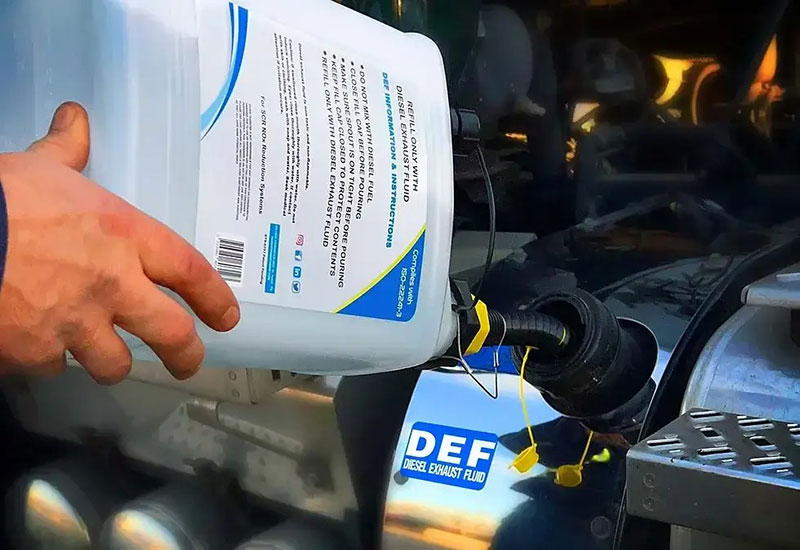
7.2. How Often Do You Need to Refill?
-
Passenger cars: every 5,000–10,000 miles
-
Heavy-duty trucks: every 500–1,000 miles depending on load and driving style
DEF consumption is generally 2–3% of diesel fuel use. So, for every 100 gallons of diesel, expect to use 2–3 gallons of DEF.
7.3. Signs Your DEF is Running Low
Modern vehicles have DEF level sensors and will display a series of dashboard warnings if fluid is low:
Common Warning Messages:
-
“DEF level low”
-
“Add DEF”
-
“Engine will not restart in XX miles”
-
“Limited engine power”
Don’t ignore these warnings. Driving without DEF can cause your engine to derate, meaning it will limit speed or power until you refill.
=> You may also like:
- How to Reset P13E400 Mercedes Adblue Fault Code: “Eng Start not possible in XXX km”
- Reset Adblue Service
8. Addressing Common Concerns and FAQs About Diesel Exhaust Fluid (DEF)
Here are answers to some of the most frequently asked DEF-related questions.
| Question | Answer |
|---|---|
| What Is Blue DEF? | Blue DEF is a branding name used to refer to DEF, particularly in Germany. Despite the name, DEF is a colorless liquid. The term “Blue” typically indicates its association with the German Association of the Automotive Industry (VDA). |
| How Often Should You Add Diesel Exhaust Fluid? | You should add DEF approximately every 5,000 miles, depending on your vehicle’s fuel consumption and DEF tank size. |
| Can You Use Water for DEF? | No, water cannot be substituted for DEF. DEF contains deionized water and urea, crucial for the chemical reaction that neutralizes NOx emissions. Using water can damage the SCR system and void the engine’s warranty. |
| What Is a Substitute for DEF Fluid? | There are no suitable substitutes for DEF. DEF is a specific mixture of urea and deionized water and is the only fluid that can trigger a chemical reaction in the system. Using a different liquid can damage the engine and SCR components. |
| What Happens When You Run Out of Diesel Exhaust Fluid? | When the DEF tank is empty, the vehicle’s SCR system cannot reduce NOx emissions, and the engine may experience a power reduction. Modern trucks often have sensors that monitor DEF levels and provide alerts. If the DEF is completely depleted, your engine may be prevented from starting until you refill the fluid. |
| Does DEF Expire? | Yes, DEF does expire. Under proper storage conditions, DEF can last up to two years if unopened and stored at ideal temperatures, or one year if opened. Always check the expiration date on the container and avoid using expired or contaminated DEF. |
| Where Can I Buy DEF? | DEF is available at various fuel stations, automotive supply stores, and from suppliers like SC Fuels. Always ensure the DEF meets ISO 22241 standards to guarantee quality. |
Conclusion
Diesel Exhaust Fluid (DEF) is a key component in the fight against diesel pollution. It’s a simple mixture of urea and deionized water, but it plays a critical role in reducing NOx emissions through Selective Catalytic Reduction (SCR) technology.
For diesel vehicle owners, fleet managers, and anyone in the commercial vehicle industry, understanding DEF is not just helpful—it’s necessary. With proper handling, timely refills, and an awareness of how it works, DEF will keep your engine running clean, compliant, and efficient.
Contact AutoExplain today for expert assistance:
WhatsApp: +1(936)2896695
Email: [email protected]
Website: AutoExplain


BMW FSC Codes Explained: Full FSC Code List for F-Series
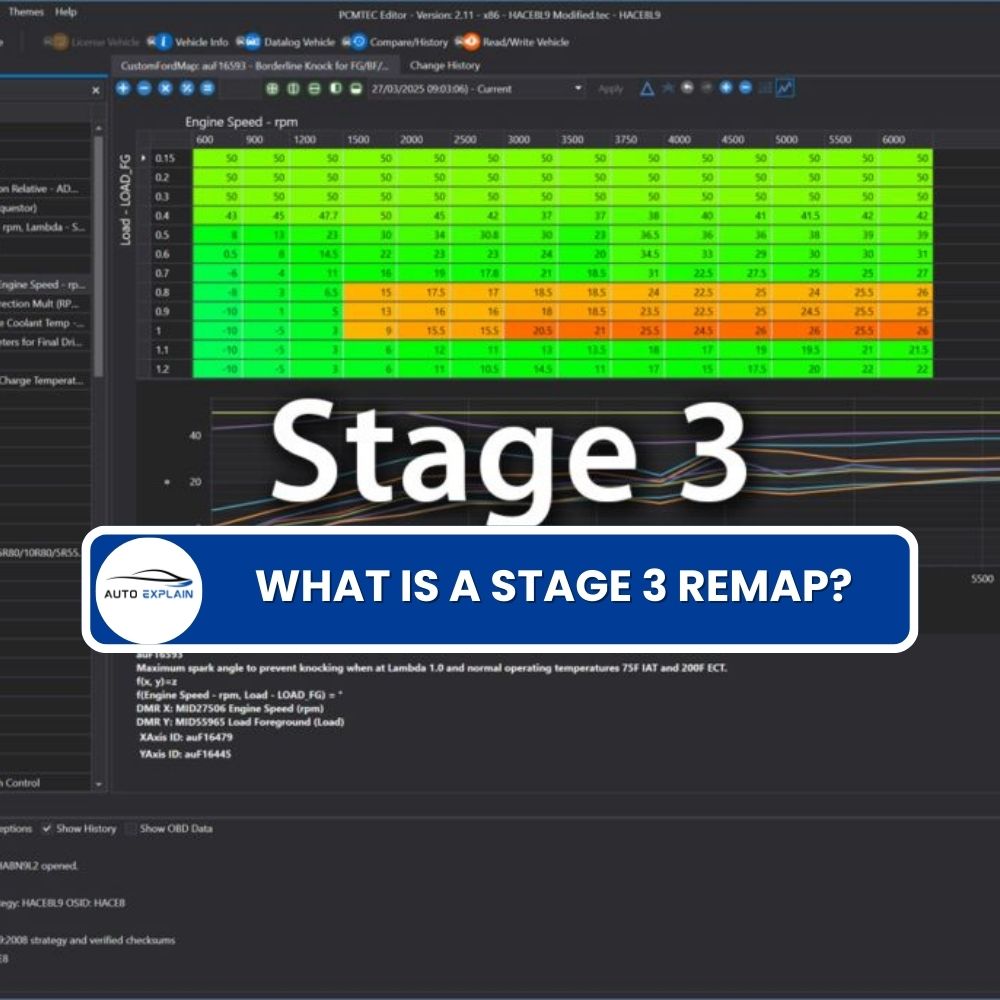
What is a Stage 3 Remap?

The Best Car Tuning Software in 2026: A Comprehensive Guide for Professionals




